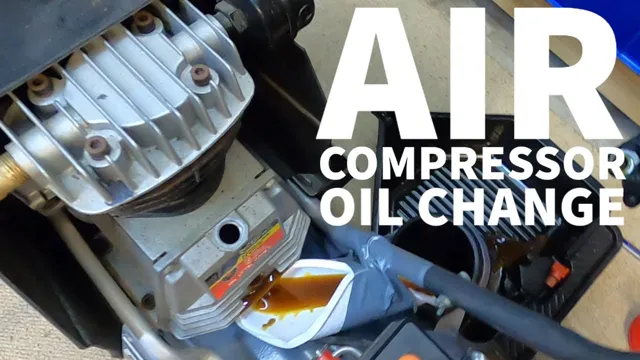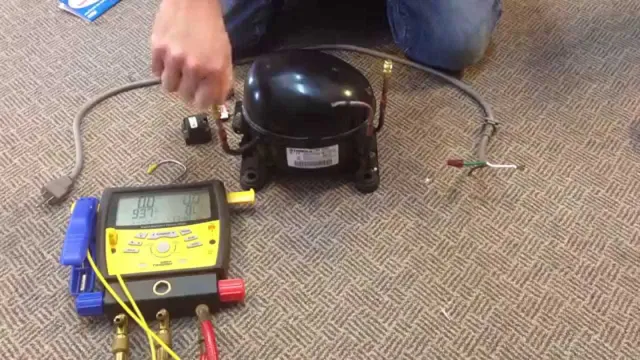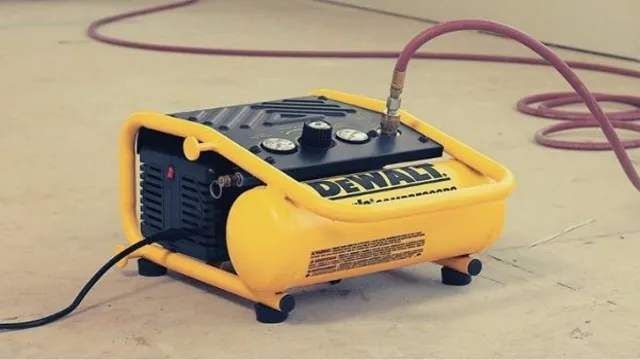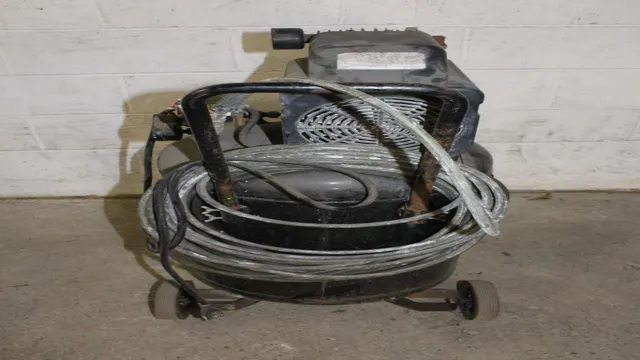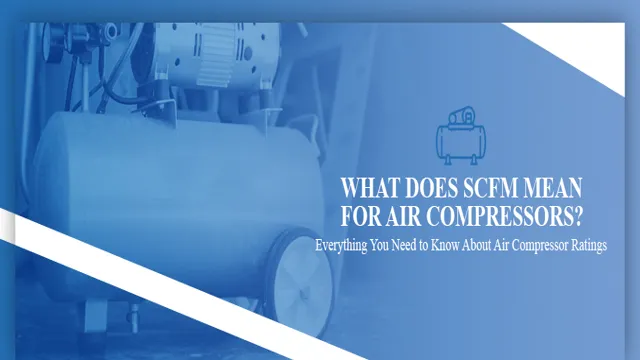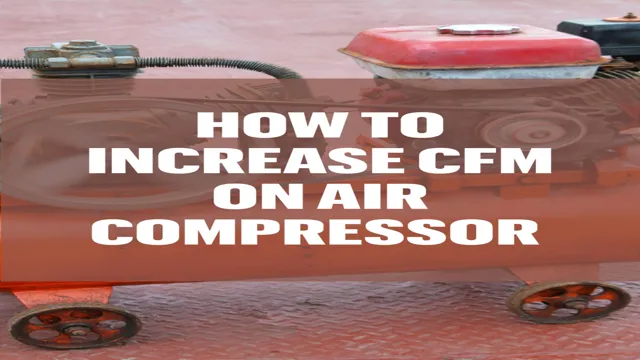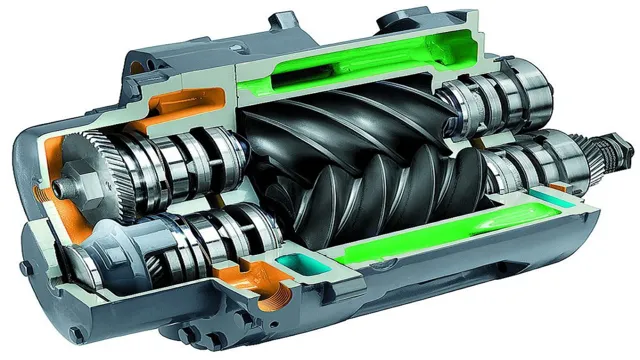How to Make My Air Compressor Stronger: 5 Tips for Boosting Performance
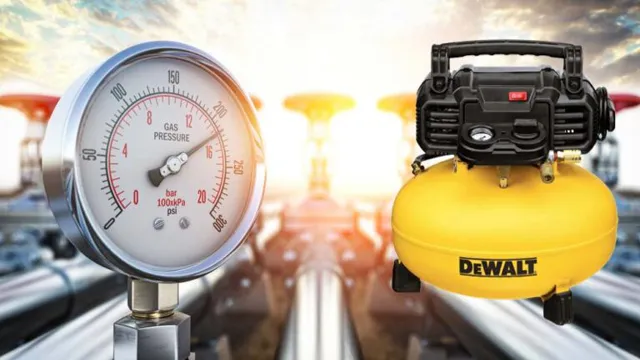
Do you want to get the most out of your air compressor? Whether you use it for DIY projects or professional work, a powerful air compressor can save you time and increase your productivity. Luckily, boosting your air compressor’s power doesn’t have to be complicated. In this blog post, we will share some tips and tricks to help you maximize your compressor’s performance.
From choosing the right tools and accessories to adjusting the pressure settings, we’ve got you covered. So, grab a cup of coffee and read on to take your air compressor to the next level!
Assess Your Current Air Compressor
If you are wondering how to make your air compressor stronger, the first step is to assess your current setup. Consider the horsepower of your compressor and the CFM (cubic feet per minute) output. If you are working with tools that require high CFM ratings, you may need to upgrade your compressor or invest in a larger tank.
Additionally, check the pressure switch and regulator settings to ensure that they are properly adjusted. Regular maintenance is also essential to keep your compressor running smoothly, such as replacing air filters and checking for leaks. Remember, a stronger compressor is not just about increasing power, but also about optimizing its performance.
With the right adjustments and upkeep, you can get the most out of your air compressor and tackle even the toughest projects with ease.
Check Your PSI Rating
When it comes to assessing your current air compressor, the PSI (pounds per square inch) rating is one of the most important factors to consider. The PSI rating determines the amount of pressure that your air compressor can generate, and this will directly impact the efficiency and effectiveness of your tools and equipment. Before you start any new project, it’s essential to check the PSI rating on your air compressor and ensure that it is in line with your tools’ requirements.
If your air compressor has a lower PSI rating than what is required, it will not be able to deliver the necessary pressure for your tools to function correctly. It’s essential to assess your air compressor’s current PSI rating regularly and make any necessary upgrades or adjustments to ensure that you can work efficiently and safely. By doing so, you’ll be able to get the maximum performance out of your tools and equipment, to complete your projects with ease and precision.
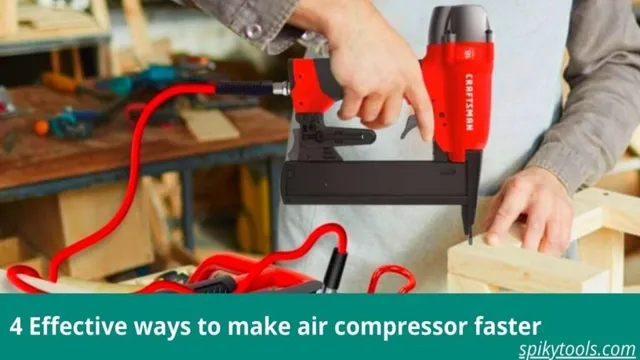
Evaluate Your CFM
If you’re evaluating your current air compressor, it’s important to assess your CFM or cubic feet per minute. This measurement determines the air flow rate and pressure your compressor can produce, which directly affects your machine’s performance. A low CFM can cause your tools to operate inefficiently or frustrate your efforts by slowing down production times.
Understanding your CFM also allows you to select the appropriate compressor size for your application, ensuring you have enough airflow to power your tools without overtaxing your machine. Checking the CFM of your compressor is a crucial step in ensuring your equipment operates effectively and efficiently, making it essential to maintain production and profitability.
Upgrade Your Air Compressor
Are you feeling frustrated with your current air compressor and wondering how to make it stronger? There are a few ways to upgrade your air compressor and increase its power output. First off, consider getting a larger air tank. A bigger tank means you can store more compressed air, which can be useful for longer periods of use or when operating larger tools.
You can also upgrade the compressor pump to one with a higher CFM (cubic feet per minute) rating, which measures the amount of air the compressor can deliver per minute. Another option is to replace the existing motor with a more powerful one to increase the amount of air produced. Lastly, make sure your air compressor is well-maintained with regular oil changes and filter replacements.
By upgrading your compressor, you can enjoy more efficient and effective use for all your DIY projects and professional needs.
Install a Larger Storage Tank
If you want your air compressor to run more efficiently and increase its productivity, then upgrading it might be the best decision. One of the upgrades you can consider is installing a larger storage tank. A larger storage tank allows your air compressor to store more compressed air, which can be especially beneficial if you frequently use your air tools for extended periods.
With a bigger tank, your air compressor will require less frequent cycling on and off, saving energy and extending the life of your compressor. Additionally, larger tanks can help reduce moisture buildup, which can damage your air tools and make your compressor less effective. By upgrading to a larger storage tank, you’ll have a more reliable and efficient air compressor that can handle even the most demanding tasks.
So, if you want to boost your air compressor’s performance, consider upgrading to a larger storage tank.
Upgrade Your Airline Fittings
If you’re looking to improve the performance of your air compressor, one simple upgrade you can make is replacing your airline fittings. Upgrading your fittings can help reduce air leaks and improve airflow, leading to faster and more efficient tool operation. Additionally, upgrading to high-quality fittings can help prevent wear and tear on your air compressor over time.
When selecting new fittings, it’s important to choose ones that match your existing equipment and are made from durable materials. Investing in upgraded fittings may seem like a small change, but it can make a big difference in the overall performance and longevity of your air compressor.
Add More Horsepower to Your Motor
If you’re looking to add more horsepower to your motor, one upgrade you should consider is your air compressor. A higher-powered air compressor can help increase the amount of air your engine receives, which in turn can boost your horsepower. Not all air compressors are created equal, though.
Look for one with a larger reservoir and higher CFM (cubic feet per minute) rating to ensure you’re getting the most out of your investment. Another factor to consider is the type of motor your air compressor uses. A belt-driven motor tends to be more reliable and efficient than a direct-drive motor.
Additionally, make sure to properly maintain your air compressor to keep it running smoothly and efficiently. With a high-quality air compressor, you may just be able to squeeze out a few extra ponies from your motor.
Maintain Your Air Compressor
If you’re wondering how to make your air compressor stronger, the best thing you can do is to maintain it regularly. One of the most important things you can do is change the oil regularly, following the manufacturer’s instructions. This will help keep your compressor running smoothly and efficiently.
Another key aspect of maintaining your compressor is to clean it regularly. A dirty compressor can lead to overheating and other issues, so make sure to keep it free of debris and dust. Finally, make sure to check the hoses and connections regularly, as leaks can significantly reduce the efficiency of your compressor.
By taking these steps, you can ensure that your air compressor is running at maximum strength and efficiency, so you’re always ready to tackle any project that comes your way.
Replace Worn-Out Parts
Air compressors are an essential tool to power different equipment, but maintaining them is often overlooked. One of the most important maintenance tasks is to replace worn-out parts. Over time, some parts like the air filter can become clogged with dust and debris, reducing the compressor’s efficiency.
This means the compressor struggles to deliver the required amount of air, and it’s likely to wear out faster. Other parts like the gaskets, valves, and belts can also wear out and cause leaks or noises. Replacing these parts is crucial to maintain the compressor’s functionality and prolong its lifespan.
Regular checks of all the components can save you from costly repairs and ensure the compressor operates at its maximum capacity. By replacing the worn-out parts, you can prevent potential breakdowns and accidents, and guarantee the best performance for your air compressor.
Clean or Replace Air Filters
Keeping your air compressor functioning at its best requires regular maintenance, and one important aspect of that is cleaning or replacing air filters. Air filters can become clogged over time with dust and debris, which can reduce airflow and put more strain on the compressor’s motor. This, in turn, can cause overheating and potentially even damage the compressor.
By regularly checking and cleaning or replacing the air filters as needed, you can ensure that your air compressor is running efficiently and avoid costly repairs. So, don’t overlook this simple but crucial step in maintaining your air compressor. Give your air filters some TLC, and your compressor will thank you for it!
Conclusion: More Power to You
Well, you could always try giving it a pep talk and some motivational affirmations. Or you could upgrade to a more powerful model and let it do the heavy lifting for you. But if you’re feeling particularly ambitious, you could always create a Frankenstein’s monster of an air compressor by combining the strength and efficiency of multiple machines.
Just be sure to have a steady hand and an electrical engineering degree, unless you want to accidentally create a fire-breathing dragon instead. Happy compressing!”
FAQs
What are some ways to increase the horsepower of my air compressor?
You can upgrade the motor, add a larger pulley, or adjust the pressure switch.
How can I improve the airflow of my air compressor?
You can clean or replace the air filter, check for air leaks, or install a larger or more efficient compressor pump.
What type of oil should I use in my air compressor to build more pressure?
It’s important to use the oil recommended by the manufacturer, but a synthetic oil with high viscosity can help to increase pressure.
Can I use a bigger tank to increase the power of my air compressor?
Yes, a larger tank can increase the amount of air available, resulting in more power and longer run times.
How can I optimize the performance of my air compressor for specific applications?
You can adjust the regulator, change the nozzle or air tool, or use different pressure levels for different tasks.
Is it possible to modify my air compressor for high-altitude use?
Yes, by adjusting the fuel-air mixture or installing a high-altitude carburetor, you can ensure your air compressor runs efficiently at altitude.
Why is it important to maintain my air compressor for optimal performance?
Regular maintenance, including oil changes, filter cleaning, and inspection of valves and fittings helps to keep your air compressor running smoothly and efficiently for years to come.

